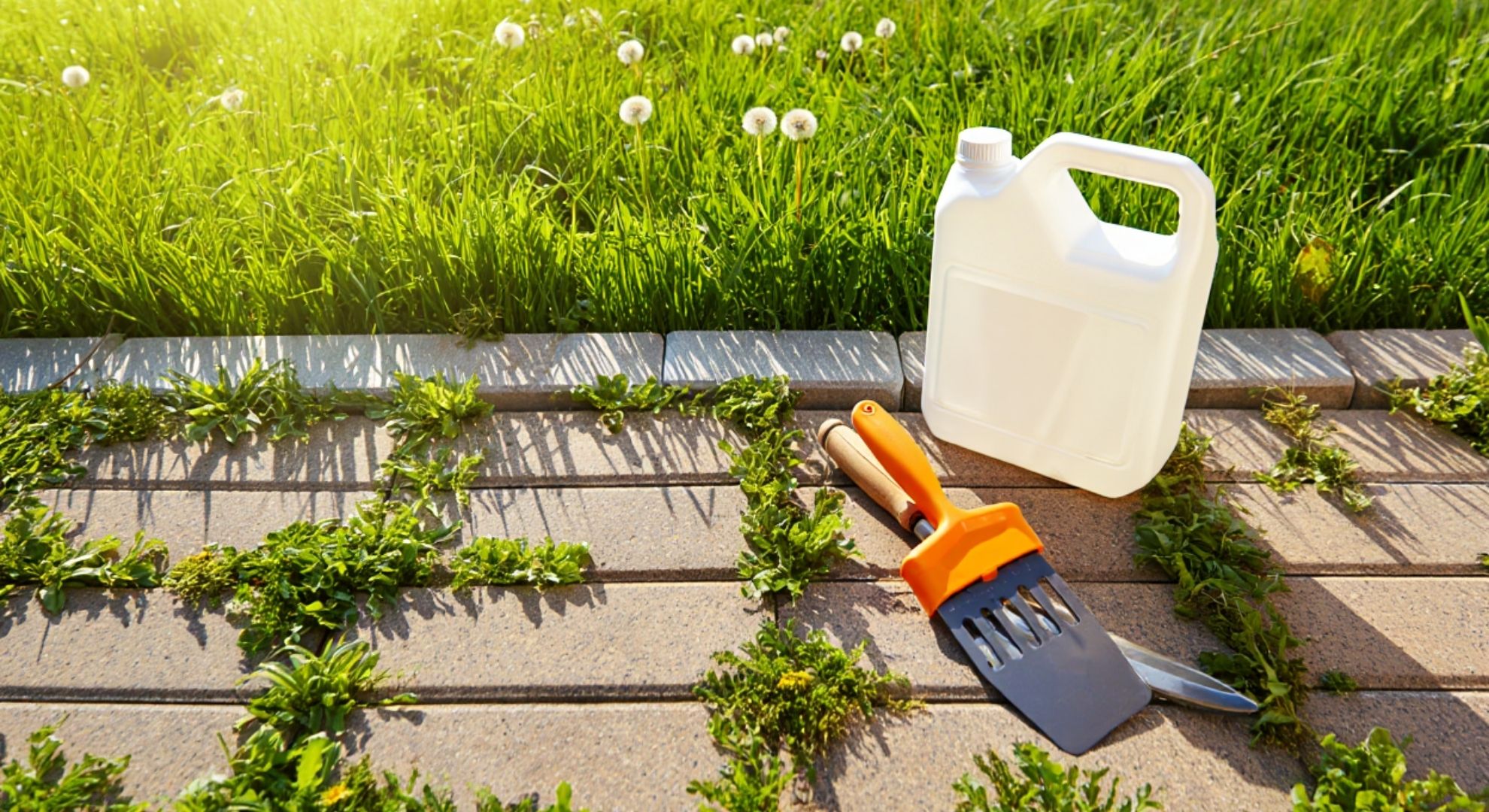A controversial gardening hack
In recent years, some gardening blogs and forums have suggested using bleach as a quick and cheap way to kill weeds. The idea has spread on social media, where users claim that a splash of bleach will keep patios and driveways spotless.
But professional gardeners and experts are now stepping in to clarify: should bleach really have a place in your gardening routine?
How bleach actually works on weeds
Bleach is a powerful chemical disinfectant. When poured on plants, it destroys their tissues and dries them out completely. Within hours, weeds can appear shriveled and lifeless. On hard surfaces such as concrete, the effect is immediate and visible.
However, its action is non-selective: bleach doesn’t distinguish between weeds and other plants. Any greenery exposed to it will die, and the soil can be severely affected.
“Bleach is not a gardening tool, it’s a household cleaner. Using it outdoors can cause more damage than you think,” warns a professional landscaper.
Comparison: natural methods vs bleach
| Method | Effectiveness | Impact on soil & environment |
|---|---|---|
| Hand weeding | Moderate, requires effort | No damage, safe for soil |
| Vinegar solution | Good for young weeds | Minimal impact, eco-friendly |
| Boiling water | Effective on roots/surfaces | Harmless, but less long-lasting |
| Bleach | Very strong, kills instantly | High risk of soil sterilization, toxic runoff |
The risks of using bleach outdoors
While bleach may seem like a shortcut, it carries serious consequences:
- Soil sterilization, preventing any plant from growing for months
- Contamination of groundwater, harmful to ecosystems
- Damage to nearby plants, including flowers and vegetables
- Health risks for pets and children playing in the garden
Safer alternatives that gardeners recommend
Instead of turning to bleach, experts highlight several eco-friendly options that are just as effective for keeping weeds under control:
- Vinegar-based sprays that dry out weeds naturally
- Boiling water, ideal for cracks in patios or driveways
- Mulching, which prevents weeds from sprouting in the first place
- Manual weeding with proper tools for precise results
- Flame weeders, which eliminate weeds without chemicals
Why bleach persists as a myth
The continued use of bleach in gardening often comes down to misinformation. Many homeowners see quick results and assume the method is harmless. Others are attracted by the low cost and easy availability compared to specialized products.
Yet, most professional gardeners emphasize that short-term results come with long-term damage, making bleach one of the least sustainable choices for outdoor spaces.
When quick fixes turn into long-term problems
The debate around bleach in gardening reflects a larger truth: sometimes, the easiest-looking solution hides bigger risks. While it can kill weeds almost instantly, it leaves behind an invisible trail of soil damage, pollution, and potential health hazards. Gardeners agree that the safest way forward is to adopt natural, sustainable practices rather than household chemicals.
